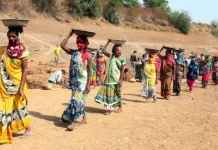Water plays a crucial role in ensuring overall hygiene. Piped water supply in villages can help women properly clean reusable menstrual products like cloth pieces and cloth pads. A report by Deepanwita Gita Niyogi
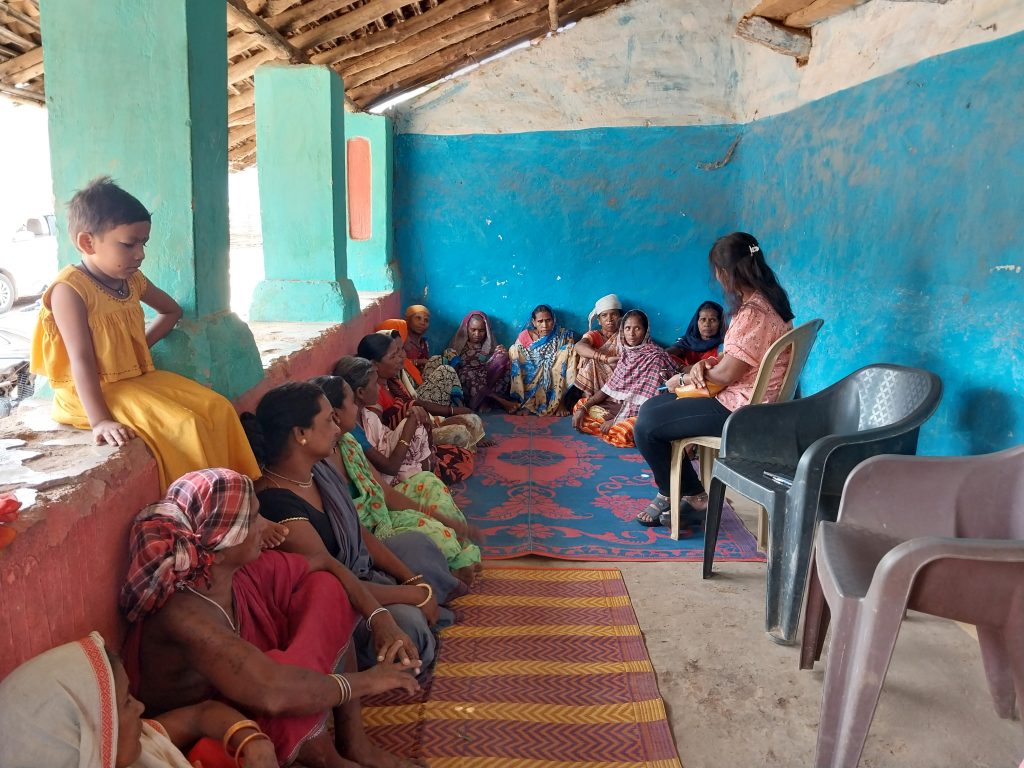
Social worker Harish Chhattri regularly conducts awareness campaigns on menstruation in Mohla-Manpur-Ambagarh Chowki district of Chhattisgarh. Through his campaigns, Chhattri emphasises on the importance of water availability and its judicious usage for ensuring menstrual hygiene.
In India’s rural areas, cloth pieces are mostly used during menstruation even though sanitary napkins have entered the scene. But these are not always affordable. In places where door-to-door waste collection is absent, disposing pads is problematic. Social taboos exist. In some villages of the district, menstruating women are forced to reside in makeshift huts. Till date, many households lack access to piped water supply. Women rely on water bodies for household needs. All these factors make menstrual hygiene a difficult thing to maintain.
“When I discuss the issue of menstrual hygiene with women, I urge them to desist from washing soiled cloth pieces or pads in water bodies. Instead, I tell them to fetch water and store it. Though piped water supply has arrived through the Jal Jeevan Mission, individual supply through taps has not started at every house in the villages,” Chhattri said.
The Jal Jeevan Mission is being run by the Ministry of Jal Shakti, Government of India. The programme is aimed at connecting every rural household in India with tap water connection. The Press Information Bureau says that till August 12, 2024, Jal Jeevan Mission has provided tap water connections to 11.82 crore additional rural households, bringing the total coverage to more than 15.07 crore households. This accounts for 77.98 percent of rural households in India.
Menstruation and access to water
According to the World Bank, an estimated 500 million women worldwide lack access to either menstrual products or do not have facilities for menstrual hygiene management. Access to water helps women effectively manage their menstruation.
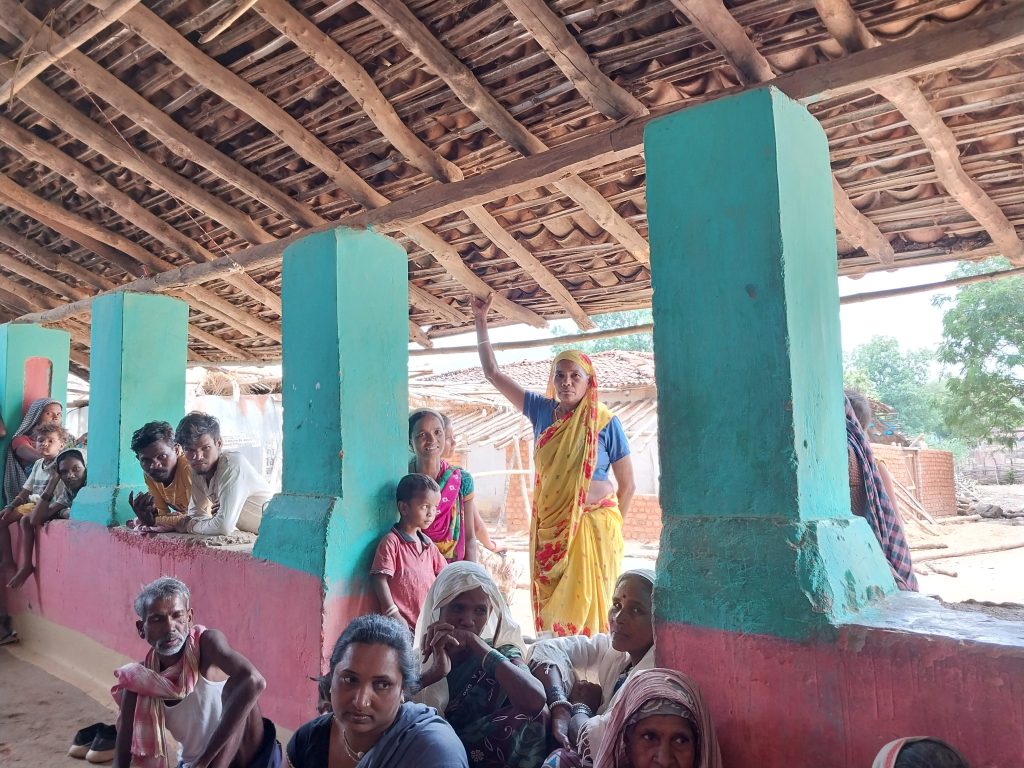
In villages, access to clean and adequate water has always been a problem, and this Chhattisgarh district is no exception. “Like many drought-prone areas, this district faces water shortage in the summers when water bodies run dry. Climate change will impact water availability in the future,” Chhattri added.
While the central government has introduced commendable policies related to menstrual hygiene management, there is a need to address gaps in implementation to make a difference in the lives of women. The social worker agrees that piped water supply through the Jal Jeevan Mission can help women in rural areas meet hygiene standards effectively. But he sounded caution. People also misuse water by keeping taps running. This should be prevented.
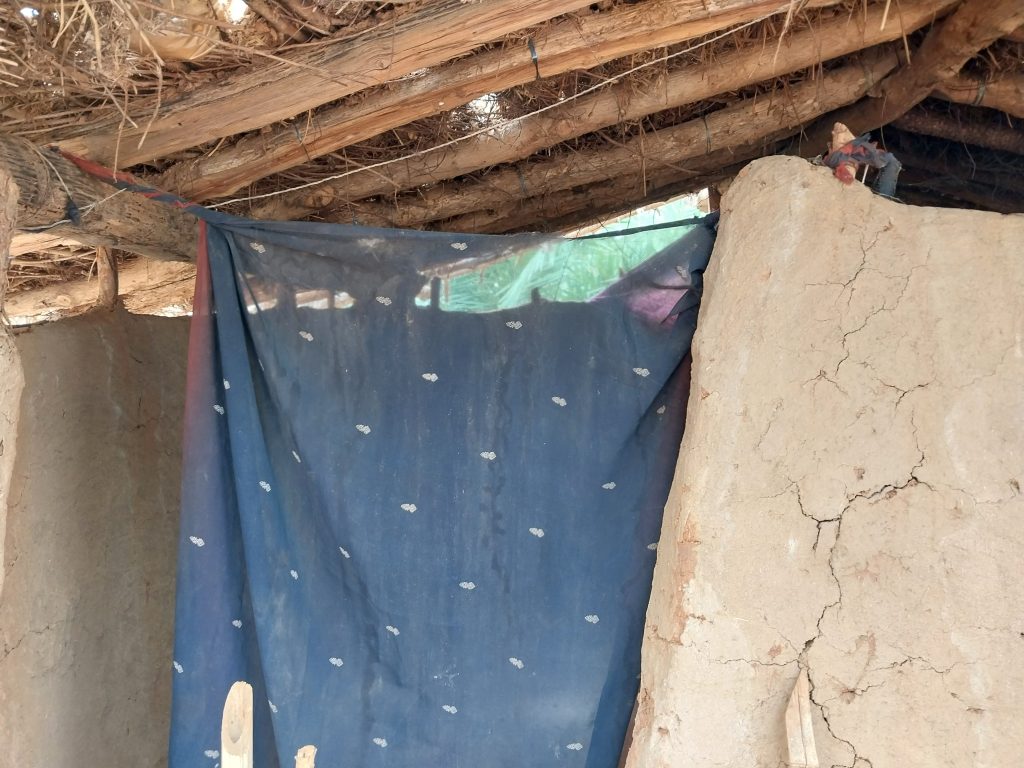
“As the onus of fetching water falls on women, they experience difficulty on a daily basis, and more so, during periods. Apart from household chores, water is needed to wash cloth pieces and cloth pads. Cloth use is being encouraged for environmental sustainability. But for washing them, there is a need to store and save water.”
Sandy Khanda runs the Green Pencil Foundation, a non-profit, based in Haryana. His organisation has worked with schoolgirls in Gurugram on menstrual hygiene management, including the correct disposal of daily use sanitary pads.
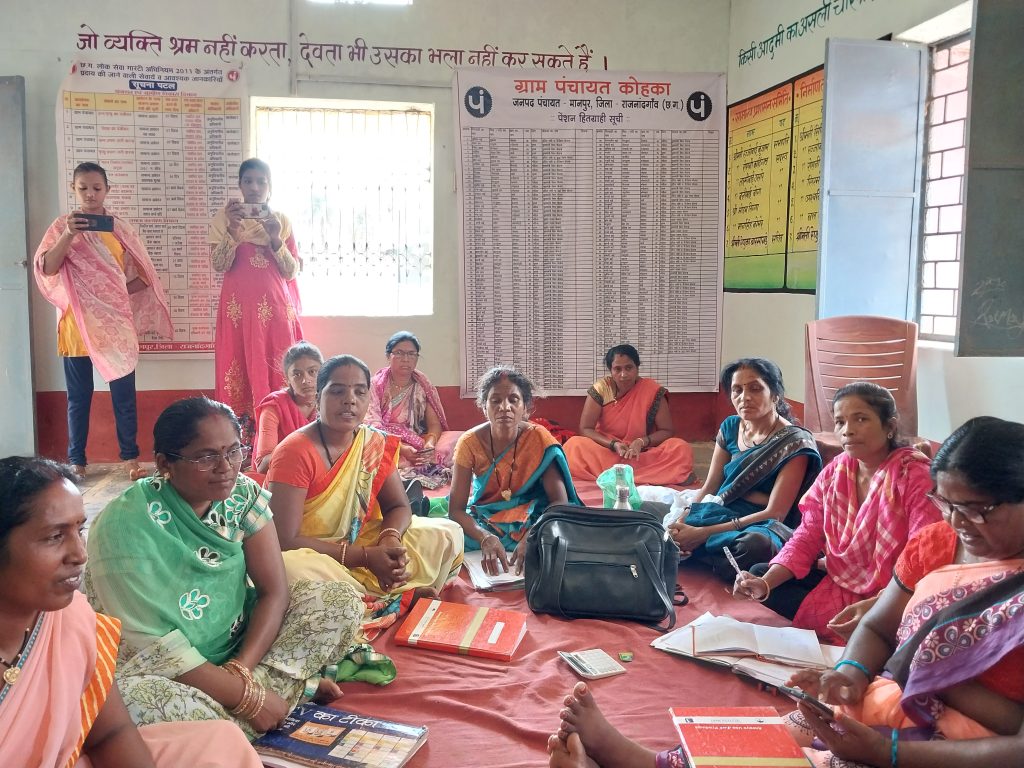
According to him, water plays a crucial role in maintaining menstrual hygiene and health. So, like Chhattri, Khanda also advocates water-saving techniques.
Khanda pointed out that cloth pads can be used multiple times in a year but require proper washing and drying. “Adding a few cloth pads to the laundry doesn’t significantly impact water consumption. In contrast, single-use sanitary pads end up in landfills or in open fields, especially in remote areas, where proper waste management systems are sometimes absent. This harms the environment.”
However, there are challenges of using cloth pads in water-scarce areas, such as certain villages of Maharashtra and Rajasthan, especially in summers.
Piped water supply makes a difference
Yogendra Pratap, who runs non-profit Jankalyan Samajik Sansthan in adjoining Rajnandgaon district, said that the Jal Jeevan Mission is yet to reach the entire Mohla-Manpur. “There are certain issues in its implementation. Some far-flung areas have been left behind. Contractors have been blacklisted for non-completion of work.”
Kanta Verma, a resident of Jamdi, informed that piped water supply has arrived in her village. But residents have to rely only on one tank. The other tank does not have water for some reason. That is why water is not always available. Verma explained that when the Jal Jeevan Mission was not there, it was difficult for women to manage menstrual hygiene. “Many of us had to fetch water from water bodies. But tap water connection has made it easy to manage periods. Some of us are also able to afford disposable sanitary pads.”
In Mohla-Manpur’s tribal-dominated villages where women spend their days in isolated huts while menstruating, the topic of menstrual hygiene is discussed during meetings. Anganwadi worker Puja Bhandari of Kohka village said that in some villages, the water connection is yet to come. Apart from judicious water usage during menstruation, adolescent girls are urged to follow strict hygiene. “But many of them cannot put to dry cloth pieces and cloth pads in sunlight due to taboos. Thus, good practices are not followed. Women should not stay in isolated huts which are dirty. They should avoid bathing in rivers and ponds while menstruating.”
Renu Prakash, who works for the women and child development department of Chhattisgarh, said that once a week-long menstrual hygiene campaign was organised during which women were urged to use pads and follow correct disposal methods.









